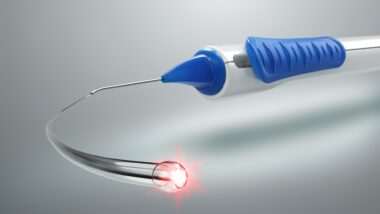Researchers from the Centenary Institute and the University of Sydney have made a major discovery in vaccine science, gaining new insights into delta inulin as a crucial vaccine component. Their findings offer a promising pathway for advancing the next generation of vaccines.
Delta inulin, an adjuvant, has long been recognised for its ability to boost immune responses against a range of infectious diseases such as COVID-19, influenza, tuberculosis and hepatitis B. Adjuvants are substances added to vaccines to elicit stronger and longer-lasting immune responses, thereby improving vaccine effectiveness.
Despite its established role in vaccines, the precise mechanisms underlying delta inulin’s action had remained elusive.
Now, in a ground-breaking study published in the prestigious journal Immunology & Cell Biology, researchers have discovered a pivotal aspect of the adjuvant’s functionality.
Using a diverse range of techniques, the study identified a protein known as Dendritic Cell-Specific Intercellular Adhesion Molecule-3-Grabbing Non-Integrin (DC-SIGN) as a receptor for delta inulin.
Dr Erica Stewart, the lead author of the study and a researcher at the Centenary Institute’s Centre for Infection & Immunity and the University of Sydney Infectious Diseases Institute, said that DC-SIGN is a protein found on the surface of certain immune cells called dendritic cells.
"DC-SIGN acts like a lock on cell surfaces and delta inulin functions as the key that fits into this lock, binding them together. This study shows that when we vaccinate with delta inulin, our cells use DC-SIGN to detect the vaccine, which then helps activate and boost the body’s immune response."
Dr Stewart says the study’s findings carry important implications for future vaccine development.
“This study not only offers us improved understanding of the intricate mechanisms governing vaccine immune responses to delta inulin but also opens up new avenues for the development of next-generation vaccines,” Dr Stewart said.
“With this new insight into delta inulin’s mode of action, researchers can now explore the creation of new vaccines that work hand-in-hand with delta inulin, offering even greater protection against existing and emerging infectious diseases.”
“This breakthrough is like finding a crucial piece of the puzzle that can make our vaccines smarter, leading to better health and safety for people worldwide,” she said.
[ENDS]
Key Facts:
Publication:
Dendritic cell–specific intercellular adhesion molecule-3-grabbing nonintegrin (DC-SIGN) is a cellular receptor for delta inulin adjuvant.
https://onlinelibrary.wiley.com/doi/10.1111/imcb.12774
About us:
About the Centenary Institute
The Centenary Institute is a world-leading independent medical research institute, closely affiliated to the University of Sydney and the Royal Prince Alfred Hospital. Our research spans the critical areas of cancer, cardiovascular disease, rare diseases, inflammation, infectious diseases, healthy ageing and biomedical AI. Our strength lies in uncovering disease mechanisms and applying this knowledge to improve diagnostics and treatments for patients.
For more information about the Centenary Institute, visit centenary.org.au
About the University of Sydney, Australia
As Australia’s first university – founded in 1850 – the University of Sydney has a proud history of global leadership in education and research and inspiring people from all backgrounds to contribute to positive real-world change. We’re a world-renowned teaching and research institution – our research combines the expertise and talents of scholars from many disciplines.
Contact details:
For all media and interview enquiries, please contact
Tony Crawshaw, Media and Communications Manager, Centenary Institute on 0402 770 403 or email: [email protected]



